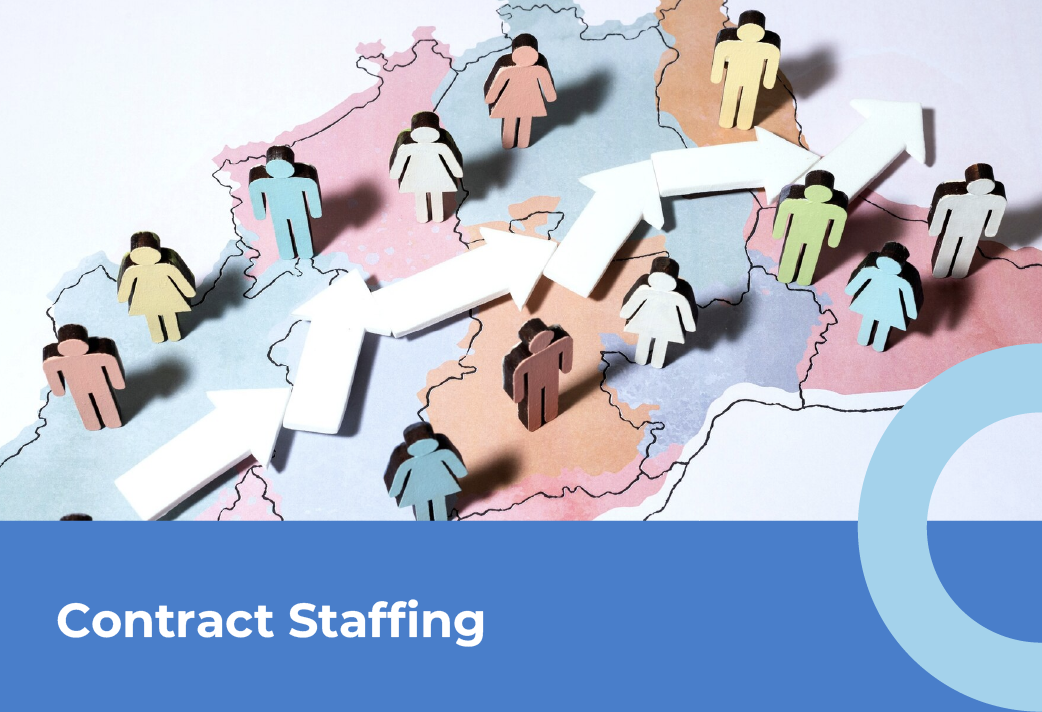
29sixservices
Add a review FollowOverview
-
Sectors Religious
-
Posted Jobs 0
-
Viewed 33
Company Description
What is Payroll Outsourcing?
What is payroll outsourcing?
Payroll outsourcing is working with a third-party provider to handle payroll-related tasks, consisting of computing and confirming salaries and salaries, subtracting and transferring funds for tax withholdings, guaranteeing pre- and post-tax advantage deductions are processed, printing paychecks, establishing direct deposits, and preparing payroll reports and journals for general journal entries.

An outsourced payroll business will require access to your business bank account and employee time tracking system. This needs trust between the company contracting the payroll service and the service itself. A lawfully binding service contract describing the payroll contracting out company’s terms, conditions, and expectations strengthens that trust.
Companies that hire a payroll contracting out service provider might likewise wish to outsource PEO or HR services. Try to find a “full-service payroll provider” to manage that. Their services generally consist of managing staff member advantages, tax filing, and personnel functions like onboarding and evaluating medical insurance service providers. Pricing will be based on the variety of workers.
Why should a business outsource payroll?
There are several factors why a company ought to think about outsourcing payroll. Two of them are tax compliance and precise tax reporting. A payroll professional is trained in both functions. A third-party service provider will have a payroll team of experts working on your account. They’ll deal with the payroll obligations, tax withholdings, and staff member advantages.
Outsourcing conserves time
Payroll processing is time-consuming. Payroll administrators track and implement advantage deductions, wage garnishments, paid time off, unsettled time off, taxes, and payroll mistakes. They likewise require to be familiar with data security issues that could arise throughout the onboarding when they collect staff member information. A payroll business can deal with all that for you.
Outsourcing can decrease costs
The time staff members invest processing payroll in-house and the salary of the payroll supervisor are expenses. A small company can invest a substantial portion of its earnings on those costs. It’s often more affordable to hire a payroll processing service. Prices for some payroll services are as low as $40 per month to deal with fundamental payroll functions.
Outsourcing ensures tax accuracy
Small companies can not pay for errors in payroll taxes. The charges and costs evaluated by state and IRS tax auditors can be substantial. A recognized payroll service provider will guarantee that the ideal quantity of taxes will be withheld and deposited on time. They assume the duty and liability for that, giving your business assurance.

Outsourcing supplies data security
Payroll companies utilize sophisticated security measures to secure worker details. That includes preserving privacy on issues like wage garnishment, payroll errors, and business tax filing. Companies with a self-service payroll system or on-site benefits manager do not usually execute the same security protocols.
Outsourcing removes software issues
The expenses of setting up, preserving, and repairing payroll software build up rapidly when you have a large workforce. Hiring the best payroll company removes that issue. They have their own software, and it’s included in what you pay them. That can streamline accounting processes like expenditure management and simplify your capital.
Outsourcing features a payroll support team
Companies that do payroll independently typically have someone responding to support concerns. Outsourcing generates a support group that can deal with concerns about direct deposit, benefit reductions, tax liability, and more. This also falls under “expense saving” since someone who would otherwise be handling service concerns can be redeployed somewhere else.
What is payroll co-sourcing?
Another choice for small companies that require support is payroll co-sourcing. This is a hybrid model in which payroll jobs are split between the organization and the third-party payroll provider. For instance, the payroll company manages jobs like information entry, tax estimations, and releasing paychecks or direct deposits. The main business maintains control over the motion of payroll funds and making tax withholding deposits.
Special factors to consider for international payroll outsourcing
Most little organization owners in the United States do not require to deal with global payrolls. If you expand your services or employ customized employees outside the nation, that might alter. International payroll options consist of multi-currency capability, compliance for the countries you’re doing business in, and worldwide tax rates and tables.
The payroll needs of workers in other nations vary from those in the United States. For instance, 35 hours is considered a full-time work in France. Your company would require to pay overtime for anything over that. You don’t need to pay social security tax. You may, however, require to pay US business earnings tax.
Benefits administration for a worldwide payroll is different likewise. HR teams with business doing in-house payroll will be accountable for checking medical insurance requirements and optimal retirement contribution guidelines in the nations where you have workers. The company requires to do that every pay duration if you’re actively recruiting. That’s a lot to track.
How payroll outsourcing works
Outsourcing includes transferring payroll information. Automation simplifies that, so you’ll desire to discover a payroll service with good technology. Best practices suggest opening a different service bank account specifically for payroll. Many business established sub-accounts of their primary checking account to simplify the transfer of funds to cover payroll checks and direct deposits.
Planning to outsource payroll
The next step is to decide what degree of outsourcing is suitable. Turning “all things payroll” over to a third-party service provider may not be the most cost-efficient solution. Some companies select to co-source payroll, keeping a few of the payroll tasks internal. That gives the business control over the process without handling a heavy workload.
Picking a payroll contracting out partner
A lot enters into selecting the ideal payroll contracting out partner. Doing company with someone you trust is necessary, so find a payroll business with an excellent reputation. If you’re co-sourcing, you’ll need a partner ready to share the workload. Using payroll software is also an alternative. Many payroll software companies have live assistance teams.
Establishing and running payroll
Decide how typically you wish to run payroll. Some business do it weekly, while others choose biweekly or monthly. Once you pick a payroll cycle, run a sample talk to a pay stub to make sure the system works correctly. Your outsourced payroll business will likely do that anyway. If not, request it so you can see how the process works.
Facilitating staff member self-service
Outsourced payroll business generally offer online portals where staff members can see their take-home income, advantages, and tax deductions. Directing them there rather than to a live assistance center is an excellent way to minimize corporate spending. It might take a while for workers to adopt this method. Stay consistent with your messaging up until it takes hold.
Payroll tax and compliance concerns
Employers are ultimately accountable for paying payroll taxes, even if they contract out payroll to a third-party provider. The payroll business can simplify your operations to make them more economical, and it can handle the duty of tax withholdings and deposits. However, any IRS charges for errors will be levied against the primary service.
is always sent to the main business, not the third-party company. They do not send out a copy to your payroll company. You can alter your address to the payroll business, but the IRS does not recommend that. If mail is mishandled or responsible parties are not in the office, your firm might be on the hook for their mismanagement.

Federal tax deposits need to be made through electronic funds transfer (EFT) to abide by IRS guidelines on payroll. The IRS has a system called the Electronic Federal Tax Payment System (EFTPS) to assist in that. Businesses are appointed an employer identification number (EIN) that requires to be provided to the payroll company if you’re going to outsource.
Please consult with a tax professional to offer further guidance.
Best practices for outsourcing payroll
Relinquishing control over your payroll is a big deal. Following these finest practices will help make the search for a supplier and the shift smoother. It’s likewise advised that you do not do this alone. Form a group at your business to investigate payroll outsourcing, then take a moment to examine these and the “Frequently Asked Questions” section below.
Choose a reputable payroll company
Reputation must be important in your search for a third-party payroll business. This is not a service you desire to shop by price. Try to find online reviews. Ask other company owner who they are utilizing. You can likewise talk with your bank or examine the Integrations Page on our site. Rho links to accounting, ERP, and human resources companies with payroll partners.
Read up on guidelines and tax responsibilities before outsourcing
Your company is eventually accountable for staff member tax withholdings and payroll tax deposits to local, state, and federal profits departments. You can outsource those obligations, however you’ll pay the price for any errors. Research this and other regulations that impact how you pay your workers. Ensure you understand what your tax commitments are.
Get stakeholder buy-in
Your workers are your stakeholders. Consulting them about moving to an outside payroll company will make the transition much easier for you and your management group. Many companies start the outsourcing procedure by speaking with their workers about what they want from a payroll company. This can likewise help you build an advantage bundle.
Review software alternatives
One alternative to outsourcing is using payroll software that automates much of the payroll processing. While this may not fully free you from handling payroll problems, it could streamline preparing and issuing paychecks and direct deposits. Review software application options before choosing an outside business to deal with payroll and benefits.
Build redundancies for accuracy
Running a payroll in parallel with the payroll being run by an outsourced company creates a redundancy to guarantee accuracy. Consider it as a check and balance system that protects you if the payroll business decreases for any factor. When things run efficiently, you won’t require to process checks. When they don’t, you’ll have the capability to do so.
Payroll outsourcing FAQs
How does payroll outsourcing work?
Payroll outsourcing is moving payroll tasks and obligations to a third-party payroll company. Depending on the contract between the main organization and the payroll company, the company can be accountable for all or just some of the payroll tasks. Examples of payroll jobs are verifying salaries, deducting and depositing payroll taxes, and printing incomes.
Is payroll contracting out a great idea?

Companies that contract out payroll can minimize the expenses of handling and delivering worker payment. Some outsourced payroll companies likewise offer personnels, which can improve service operations. Those are both great concepts, however outsourcing will come down to your organization requirements. It’s an excellent concept if it improves your bottom line.

Who are some typical payroll contracting out partners?
Gusto, Paychex, and ADP are three of the most widely known payroll business. QuickBooks, a popular accounting platform for small companies, likewise has a payroll service. If you operate globally and need numerous currencies and worldwide compliance, have a look at Rippling Global Payroll. For human resources, take a totally free demonstration of BambooHR.
Can I do payroll myself?
Yes, you can do payroll yourself. However, if you wish to do it accurately, you’ll need the best payroll software. Doing it without software leaves excessive space for error.

When does it make good sense for a company to begin payroll outsourcing?
Companies can outsource their payroll at any time. It’s normally an excellent idea to begin pricing payroll services when you get near to 10 workers. Evaluate the expense and the time it requires to process payroll weekly. You’ll understand when it’s time to make a move.
Conclusion: Simplify payroll with Rho and Gusto
Outsourcing payroll to another company can be an excellent relocation for lots of services. But it is necessary to carefully look into the outsourcing process, understand your tax obligations, and fully veterinarian any company you’re considering as a third-party payroll processor.
Once you do pick one, Rho has direct integrations with one of the most popular options on the marketplace today: Gusto. Through this direct integration, groups on Gusto can ready up quickly with Rho and start running payroll more efficiently. With Gusto, groups can anticipate not only enhanced payroll procedures, but HR, too. By removing the friction from these important work streams, teams can focus on other elements of their business, all while staying a certified, efficient, and trustworthy.
Find out more about Rho’s combinations today.
Any third-party links/references are offered informative functions just. The third-party sites and material are not backed or controlled by Rho.
Rho is a fintech business, not a bank. Checking and card services supplied by Webster Bank, N.A., member FDIC; cost savings account services supplied by American Deposit Management Co. and its partner banks.
Note: This content is for informational purposes only. It doesn’t always show the views of Rho and should not be interpreted as legal, tax, advantages, financial, accounting, or other advice. If you require particular guidance for your business, please speak with an expert, as guidelines and regulations alter routinely.

